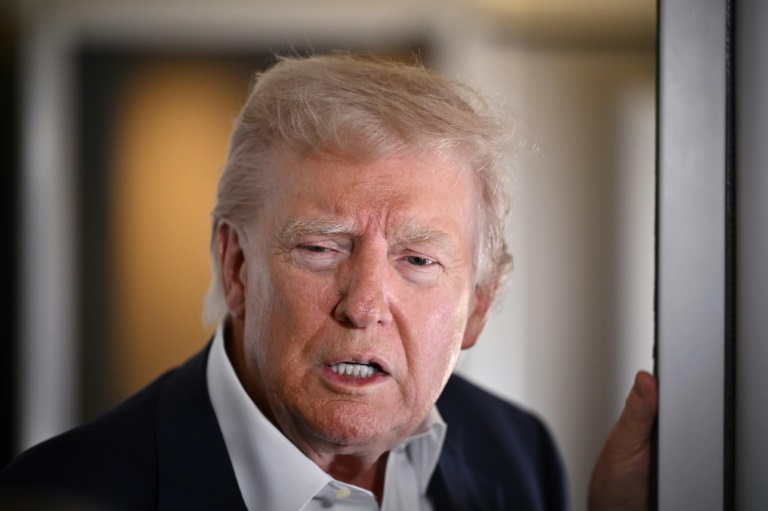US Anti-Disinformation Safeguards Falter During Trump's First 100 Days

During President Donald Trump's initial 100 days in office, the United States weakened crucial safeguards against misinformation by cutting federal funding for disinformation research and shutting down an important body tasked with countering foreign influence campaigns.
Experts caution that these actions might have significant national security repercussions, potentially allowing US foes like Russia and China greater latitude to spread misinformation as geopolitical tensions escalate.
Alongside social media platforms reducing their content moderation efforts—and Meta halting third-party fact-checking in the U.S.—these changes have made researchers worry that it might become increasingly difficult for people to distinguish between truth and falsehoods.
Recently, the National Science Foundation decided to revoke numerous research grants. They stated these projects did not align with their current objectives. This included initiatives centered around diversity, equity, and inclusion (DEI), along with studies addressing misinformation and disinformation issues.
Elon Musk's Department of Government Efficiency (DOGE), tasked with reducing government expenditures, commended the NSF for their efforts in terminating 402 "inefficient" DEI grants, which the organization claimed resulted in savings of $233 million.
"It’s astounding that exploring how individuals are deceived by inaccurate information has become off-limits," stated Lisa Fazio, an associate professor of psychology at Vanderbilt University, verifying that her NSF grant for investigating "the formation of false beliefs and methods to rectify them" was revoked.
" Our efforts will persist but on a reduced scale," she posted on the platform Bluesky.
Many of the ended grants concentrated on combating health misinformation along with developing methods for detecting artificial intelligence and deepfakes across technology platforms. Researchers mentioned this as scammers increasingly exploit affordable and readily accessible AI tools.
- 'Censorship' -
"Studying the impact of technology on society is essential for ensuring accountability among major tech companies," stated Becca Branum, who serves as a deputy director at the non-profit organization Center for Democracy & Technology (CDT).
Protecting businesses from critique by cutting funding for research constitutes censorship that should concern everyone.
The reductions occurred only a few days following Secretary of State Marco Rubio's decision to close the State Department’s Counter Foreign Information Manipulation and Interference (R/FIMI) unit, responsible for monitoring and combating misinformation originating from external sources.
"By shutting down the office, Rubio has opened the American information space to the likes of Russia, China, and Iran," said Benjamin Shultz, lead researcher at the American Sunlight Project, an anti-disinformation watchdog in Washington.
This month, the disinformation-fighting company Alethea reported uncovering a Russian operation aimed at eroding confidence in U.S. defense and military initiatives.
The entities targeted by this network, associated with a Russian influence campaign called "Portal Kombat," were the American corporation Lockheed Martin and their F-35 fighter jet project.
The R/FIMI was formerly called the Global Engagement Center (GEC) and at one point employed numerous staff members with an operational budget of approximately $60 million.
Rubio defended the shutdown by stating that it was the duty of governmental authorities to "safeguard and ensure the liberty of Americans to express their right to free speech."
Reality and truths
The GEC, founded in 2016, has consistently been under examination by GOP legislators who allege that it engages in censorship and surveillance of U.S. citizens.
The closure leaves the State Department without a specialized unit to monitor and combat disinformation spread by U.S. adversaries for the first time in more than eight years.
This development follows Rubio’s broader proposals to overhaul the State Department, which include reducing staff levels and closing specific initiatives.
The Trump administration is likewise focusing on individuals who were looking into foreign meddling in U.S. elections.
Reports indicated that the administration has transferred numerous officials handling this matter from the FBI and compelled some departures among those employed at the Department of Homeland Security’s Cybersecurity and Infrastructure Security Agency (CISA).
“As we near 100 days of Trump’s second term, it has become more difficult than ever to think that American politics—and society as a whole—have come to a point where truth and facts are dispensable,” stated Schultz.
ac/sla/sst
0 Response to "US Anti-Disinformation Safeguards Falter During Trump's First 100 Days"
Post a Comment